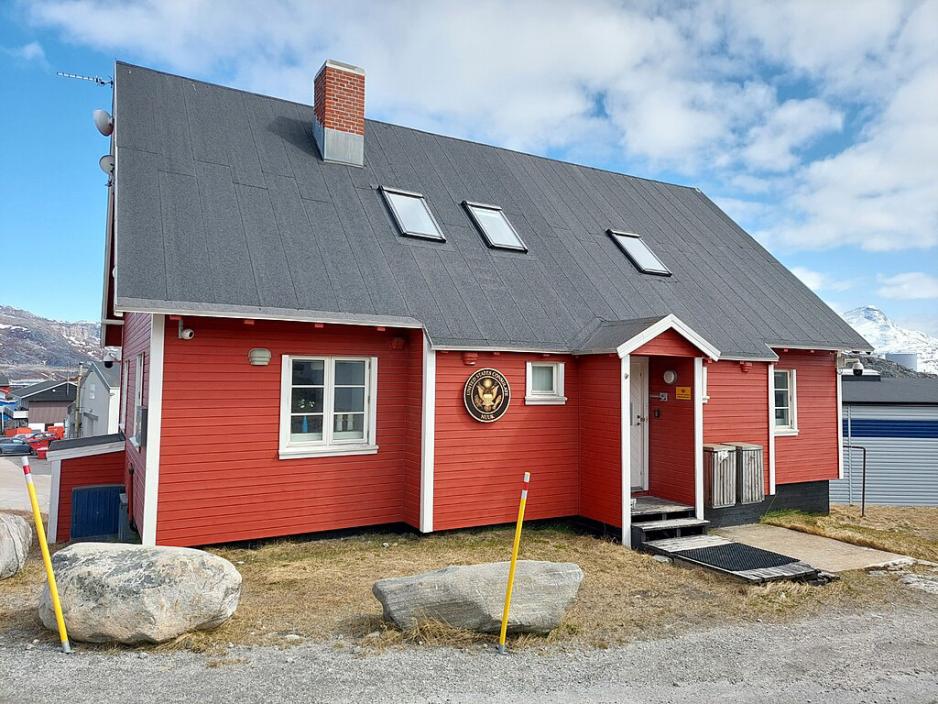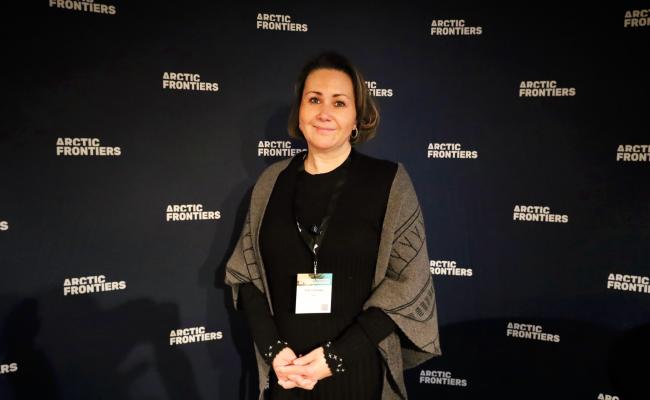Op-ed: Rubio Should Ask Why US Diplomatic Mission in Curaçao, but not Greenland, Has Its Own Integrated Country Strategy

U.S. Consulate in Nuuk. (Photo: Ekrem Canli, CC BY-SA 4.0 via Wikimedia Commons)
This is an opinion piece written by external contributors. The views expressed are the authors' own.
The U.S. Consulate General in Curaçao is quite unusual. It is currently the only U.S. diplomatic post that is located in an Overseas Country or Territory of the European Union that produces its own unclassified and releasable mission strategic plan (i.e., Integrated Country Strategy).
Although widely overlooked back in Washington at Main State, that makes for an interesting state of affairs.
First, the Netherlands is not the only member state of the European Union that has Overseas Countries and Territories.
Denmark has Greenland. France has French Polynesia, French Southern and Antarctic Territories, New Caledonia, Saint Barthélemy, Saint Pierre and Miquelon, and Wallis and Futuna.
Second, Curaçao is not the only Overseas Country or Territory that hosts a U.S. diplomatic post. There is a U.S. Consulate in Nuuk (Greenland). There is also a U.S. Consular Agency in French Polynesia (France).
That distinction goes to Greenland
Third, Curaçao is not the only Overseas Country or Territory that is a member of a regional intergovernmental organization. For example, French Polynesia and New Caledonia are full member states, and Wallis and Futuna is an associate member state, of the Pacific Islands Forum.
Fourth, Curaçao does not appear to be the most important Overseas Country or Territory in the eyes of the current administration. Recent comments by President Donald Trump suggest that distinction goes to Greenland.
Based on these observations, it is remarkable that there are no unclassified and releasable mission strategic plans produced for any Overseas Countries or Territories other than Aruba, Curaçao, and Sint Maarten.
At a minimum, one would expect that there would be one for Greenland. On normative grounds, one could make good cases for French Polynesia and New Caledonia as well.
Those unrealized expectations raise a couple of foreign policy questions for the Trump Administration.
Also read (The text continues)
One is whether there is strong alignment at the U.S. Department of State between diplomatic reality and the underlying beliefs that are driving mission strategic planning, particularly with respect to dependencies, areas of special sovereignty, and other autonomous regions.
Another is whether there is good integration at the U.S. Department of State between the winning aspirations of the new administration - as sketched out in the America First Foreign Policy Agenda - and where independent strategic planning missions are currently located around the world.
If the Trump Administration asks those questions, it would demand the U.S. Department of State to deeply think about whether it makes sense for the diplomatic post in Curaçao to operate as an independent strategic planning mission but not the ones in Nuuk and Puna'auia.
In the First 100 Days, Secretary of State Marco Rubio needs to ask these questions of his senior leadership team, who in turn need to work with the functional bureaus, regional bureaus, and diplomatic missions to create a systematic response.
Right now, there is far too little congruence, coherence, and consistency in the mission strategic planning of the U.S. Department of State. That needs to change.
Secretary Rubio needs to take two actions.
Part of that blame lies at the feet of the Biden Administration. Secretary of State Antoni Blinken failed to improve the quality of bureau and mission strategic planning as part of his reform and modernization agenda.
Whether that is due to the failure of Salman Ahmed of the Policy Planning Staff to provide the Office of the Secretary of State with high quality policy analysis on U.S. foreign policy planning remains an open question.
The appropriate Congressional committees of jurisdiction should ask that question.
To avoid a similar fate as his predecessor, Secretary Rubio needs to take two actions.
First, he should direct his senior leadership team to reevaluate and realign the strategic choices of the U.S. Department of State. That includes where and how the U.S. Government plays in dependencies, areas of special sovereignty, and other autonomous regions.
Second, he should direct his Policy Planning Staff to completely overhaul the guidance and instructions on strategic planning that are given to the functional bureaus, regional bureaus, and diplomatic missions. That includes the Integrated Country Strategy Guidance and Instructions.
In the meantime, he should consider taking the preliminary measure of directing Consul Monica Bland at the U.S. Consulate in Nuuk to produce an unclassified and releasable mission strategic framework for Greenland.
That should not be a heavy lift, and it would promote increased accountability in Greenlandic Affairs to the American people.



